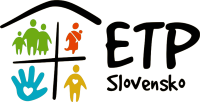What can we do for the Roma?
The discussion entitled Bridges Out of Poverty took place in Artforum bookstore on the occasion of the International Roma Day. Irma Horvathova (community worker of Moldava nad Bodvou), Slavka Macakova (ETP Slovakia), Marek Sulik (director), Miro Pollak (plenipotentiary for Roma communities ) and Andrej Ban (journalist and photographer) accepted the invitation to join the discussion, which was lead by Laco Oravec (Milan Simecka Foundation).
ETP Slovakia’s Proposals for the State and EU for Roma Integration
a) The use of Community Centres, staffed by well trained generalists, located close to where poor families live, pioneered by ETP, now has general acceptance. Because, however, many disadvantaged communities do not have the benefit of such professionally staffed centres we would like to see them in every town and village where there is a substantial marginalized Roma community. We therefore urge the Government and the European Commission to pursue this aim.
b) Integrated, comprehensive services delivered and provided by a “from cradle to grave” approach, also now has widespread acceptance as the way forward but theory has yet to become practice in all marginalized Roma communities. Most service providers at all levels still operate in a traditional “silo” way, with little joined up thinking. We urge that this example be followed nationally and also in the EU.
c) Individual Development Accounts (IDAs) – Savings Program. Many countries, especially in South America, have changed their welfare policies from providing unconditional cash benefits to poor families to conditional cash transfer schemes which require a commitment from the recipient, demonstrating self help. We would like to see the Governments follow these examples, the worth of which has been amply demonstrated by ETP Slovakia – since 2006 more than 400 individuals have been involved. The Savings Program teaches Roma people how to a) resist loan sharks, b) better manage their limited funds through the month, and, most importantly c) dream and think about the future prospects for the whole family as well as how to make their dreams come true.
d) Micro-Credits for home improvements again demonstrate self help. In cooperation with Habitat for Humanity International and the Office of the Plenipotentiary of the Government of the Slovak Republic for Roma Communities, micro-credits of up to 1,200 euros, disbursed by ETP Slovakia since 2006 to low income families, have helped 450 families to apply these micro-credits to build a bathroom, get access to water, construct a new roof, and install heating or insulation, and, in combination with the Savings Program and their own savings, some of our clients have been able to build new houses for themselves. Roma borrowers repay their micro-credits over a maximum period of 4 years and receive training in financial education and construction skills. We encourage the Ministry of Transport of the Slovak Republic and EU Commissioner for Regional Development to establish Micro-credit Facilities which will offer micro-credits to Roma families to build and renovate homes, when supported by experienced NGOs.
e) CrossRoads, the course ETP Slovakia has introduced to Europe, has encouraged Roma clients, most of them with no hope, that all is not lost, that, despite discrimination and racism they face on a daily basis, perhaps wrong decisions they have taken in the past, they still have a purpose and hope and a future. CrossRoads is based on the belief that every individual has the power to change, to re-create themselves, or to begin anew and therefore teaches participants how overcome obstacles, encourages and motivates them to finish education, and teaches them how to go for a job which suits their skills. A CrossRoads course should be made available to all unemployed people in Slovakia and Europe as one of the conditions to receiving social benefits.
f) Bridges out of Poverty is a unique tool designed specifically for social, health, legal services professionals, school teachers and representatives of local and regional government, whose daily work connects them with the lives of people in poverty. Only a deeper understanding of the challenges – and strengths – of people from poverty helps professionals to partner with such people and to create opportunities for their success. Bridges out of Poverty should be made available to all staff at schools, labour offices, local and regional authorities, so that they better understand the people they serve.

